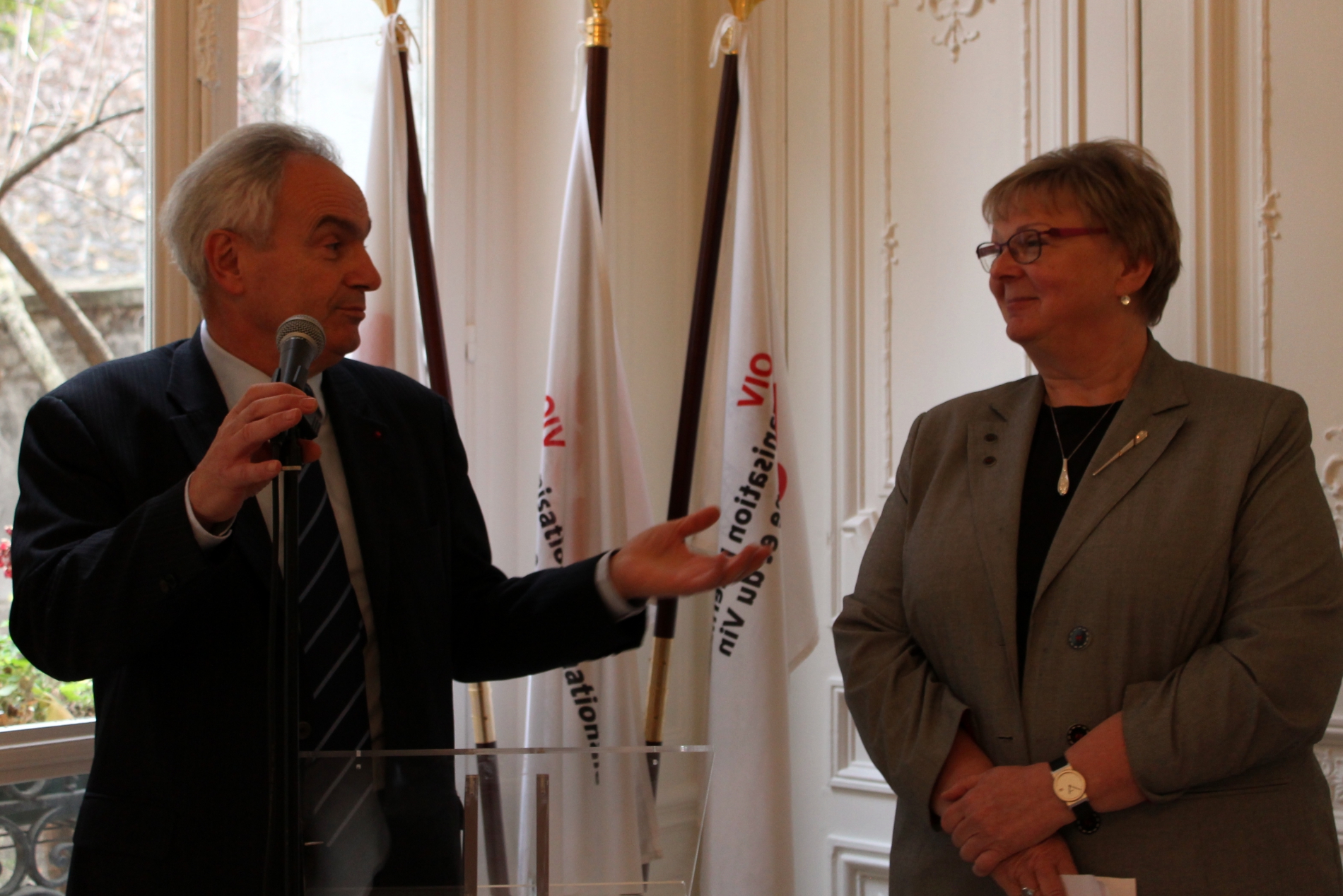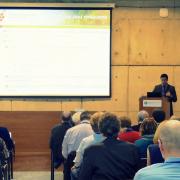
One of the central themes of this conference was the integrated management of pests and diseases based on the development of new precision technologies for the control of pesticide use, protecting food safety and promoting sustainable development in the vitivinicultural industry.
The OIV was represented by the Head of the Viticulture Unit, Mario de la Fuente, who gave a presentation on the actions that are carried out within the "Viticulture" Commission in relation to the reduction and reasoned use of pesticides in the vineyard.
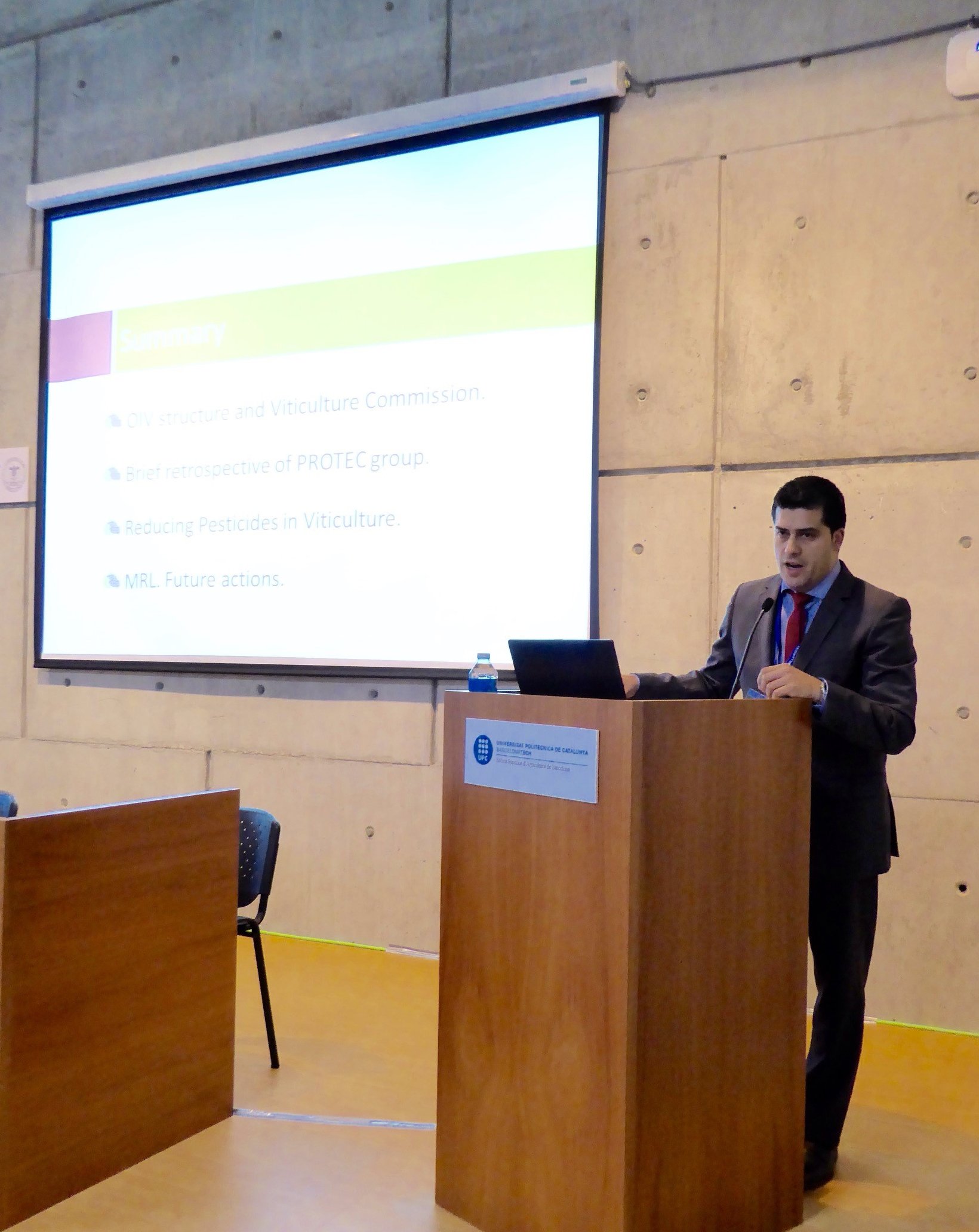
The conference, presided over by the Director General of the Barcelona School of Agricultural Engineering (ESAB), was attended by over 60 speakers from many research centres and/or universities the world over, numerous representatives from the main producers of phytosanitary products and pesticides and manufacturers of application machinery, students, etc., thus bringing together almost 200 people each day.
The work was organised according to diverse thematic areas: Sprayer performance/Quantifying spray parameters and standards; Operator training on phytosanitary products; Biological efficacy of spraying; Precision application; Reducing off-target exposure; Spray physics and spray droplets and Application to tree and bush crops.
In total, 12 posters, 45 oral communications and 3 opening addresses highlighted the existing problems and challenges, while at the same time seeking to set the necessary bases for scientific and technological advances in pesticide application. These debates essentially contributed to the technological transfer of this progress for the vitivinicultural sector and, especially, to sustainability and integrated management.
The new challenges and concerns faced by the vitivinicultural sector are also of significant concern to the OIV. Strong evidence of this is the important presence of the promotion of sustainable viticulture (which affects pesticide management, among other factors) within one of its five strategic axes for the 2015-2019 Strategic Plan.
As part of its commitment to sustainability, the OIV has been working on various resolutions since 1997: on integrated production (VITI 1/1999; CST 2004); on the preservation of biodiversity (VITI 01/2002); on organic production (ECO 460/2012) and, of course, sustainable production (CST 2004; CST 2008 and VITI 422/2011). Similarly, the Organisation has worked on the management of different pests and diseases such as, for example, phytoplasmas (VITI 3/2006) or trunk diseases (VITI 2/2006).
In addition, the OIV has adopted three resolutions on maximum residue limits for pesticides. Two of these encourage the creation of a directory of official lists of Member States or other international organisations with maximum residue limits (MRLs) for grapes (VITI 01/2007) and wine (OENO 14/2006), while the other resolution is on the adoption of a standardised methodology for the determination of pesticide residues in wine by an extractive method (OENO 436/2012).
The Vine Protection and Viticultural Techniques (PROTEC) Expert Group is continuing to work on different challenges intrinsically linked to sustainability, integrated management or the application of phytosanitary products, through various actions:
- General principles for sustainable viticulture. Environmental, social and economic aspects (CST 12-518). Practical recommendations (CST 13-530).
- Reduction or reasonable use of pesticides in viticulture. During these conferences, the preliminary results of a questionnaire carried out on Member Countries with regard to pesticide use were presented.
- Overall harmonisation of the MRLs and protocols for pesticide application. It is extremely advisable that the protocols for the use of pesticides are standardised and further harmonisation of MRLs is sought for the active substances used in viticulture the world over.
The conference concluded with hugely successful participation from the sector for the application of phytosanitary products and pesticides. All of the challenges raised during the event will be addressed to some extent in the future, and the OIV hopes to be able to keep working together towards more sustainable vitiviniculture.
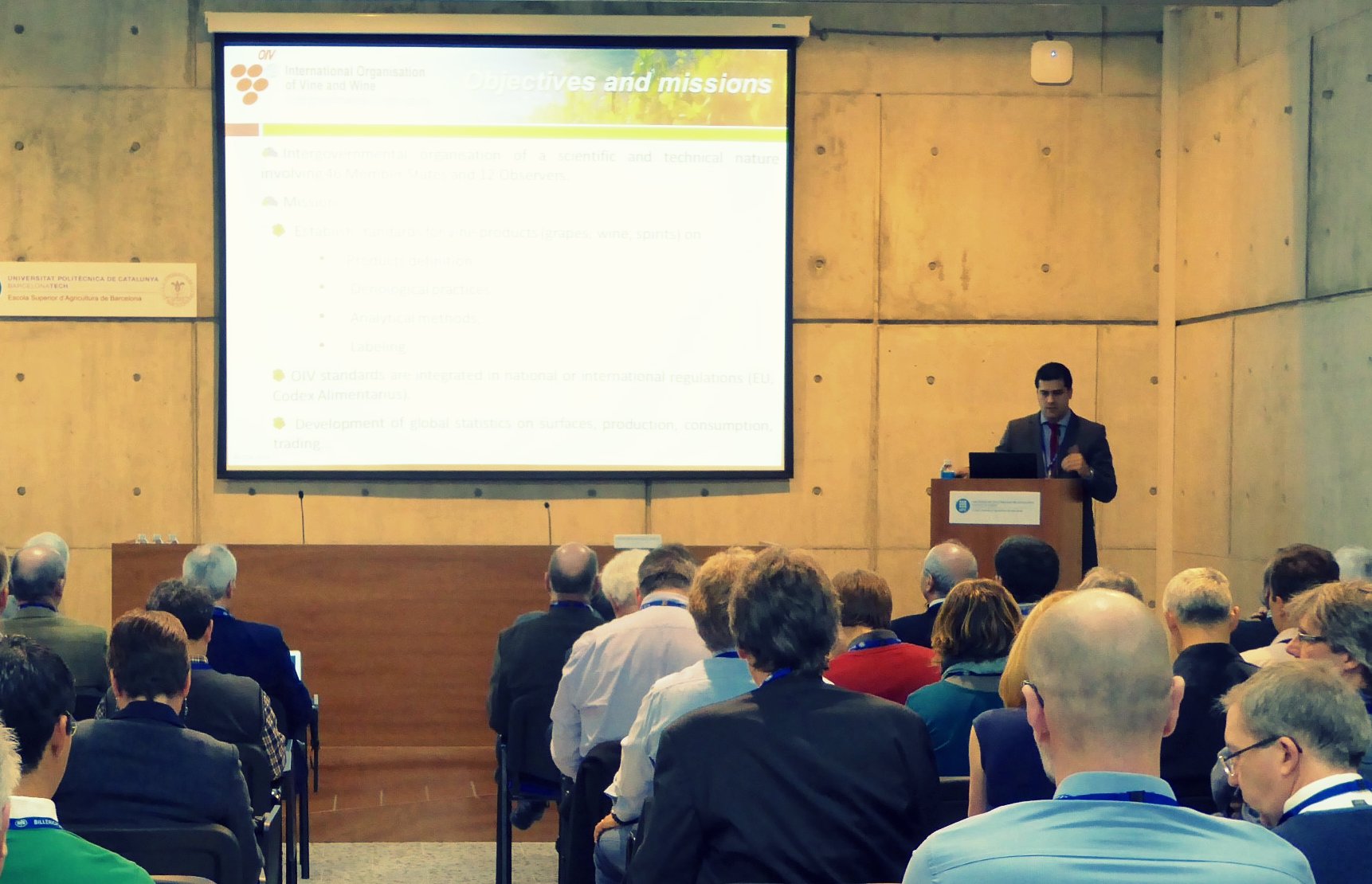
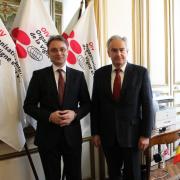
Jean-Marie Aurand praised the quality of the relationship between Romania and the Organisation, which is rooted in over 90 years of common history, given that Romania was one of the founding members.
The Romanian delegation is very active within the OIV. Romania hosted the 2013 Congress in Bucharest and last year the OIV Awards ceremony was held at the Romanian Embassy in Paris.
H.E. Mr Luca Niculescu confirmed the strong interest that his country has in the work of the Organisation, at a time when the Romanian vitivinicultural sector is undergoing an extensive process of modernisation.
It is within this context that Romania proposes to organise a presentation of its wines at the OIV headquarters this year.
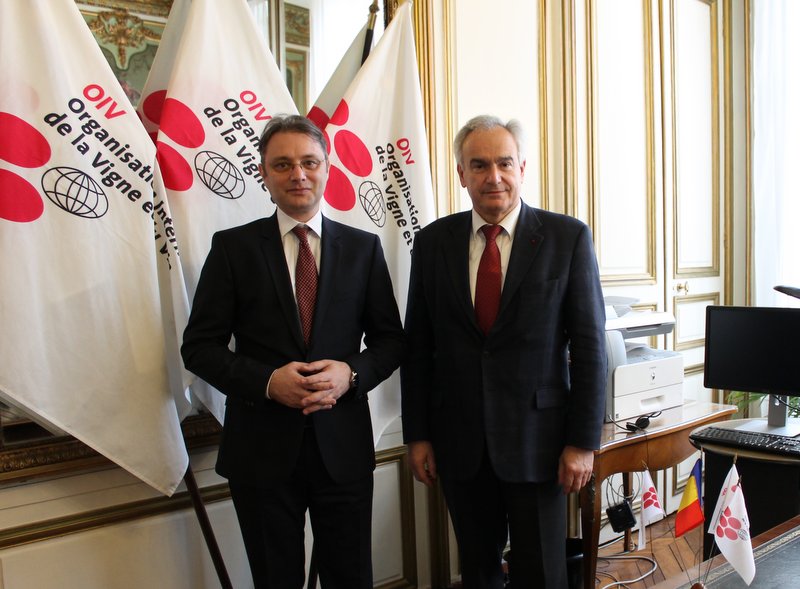
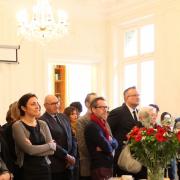
This work will make it possible to very quickly establish the launch of the new OIV website, access to the scientific and technical heritage of the OIV via the digitisation of its Bulletin and the rationalisation of the working structures (expert groups) adapted in accordance with the Strategic Plan.

"Sustainable development, climate change and the expectations of consumers and citizens have become inescapable for an increasingly globalised vitivinicultural sector," Jean-Marie Aurand recalled, noting that the OIV needed to be at the centre of these concerns. To this end he confirmed that, alongside traditional subjects relating to technical standards and good practices, the OIV was going to develop its work with regard to environmental issues within a new structure specifically dedicated to this purpose.
From April 2016, a new Exert Group known as "ENVIRO" will address, in a multidisciplinary manner, the problems with respect to sustainable development and climate change in order to develop a comprehensive and consistent approach.
This means promoting vitiviniculture that is more competitive thanks to innovations and the adding of value to products, yet also more sustainable.
After having praised the delegates and the representatives from the Diplomatic Corps, whose high level of attendance demonstrated the attachment of OIV Member States to the Organisation's activities, Jean-Marie Aurand thanked the experts and professionals who contribute to the OIV's expertise and participate in promoting its actions.
OIV President Ms Monika Christmann also expressed her desire to move forward in 2016 with the dossiers currently being reviewed by the OIV, as well as her delight at being able to act together with the new Commission and Sub-Commission Presidents elected in 2015. She reiterated the importance of maintaining high scientific and technical standards, which allow the OIV to fully play its role as a reference for the vitivinicultural sector, particularly with regard to the Codex Alimentarius.
The year 2016 will also see the OIV World Congress of Vine and Wine and General Assembly held in Brazil for the first time, in Bento Gonçalves on 24-28 October 2016.
